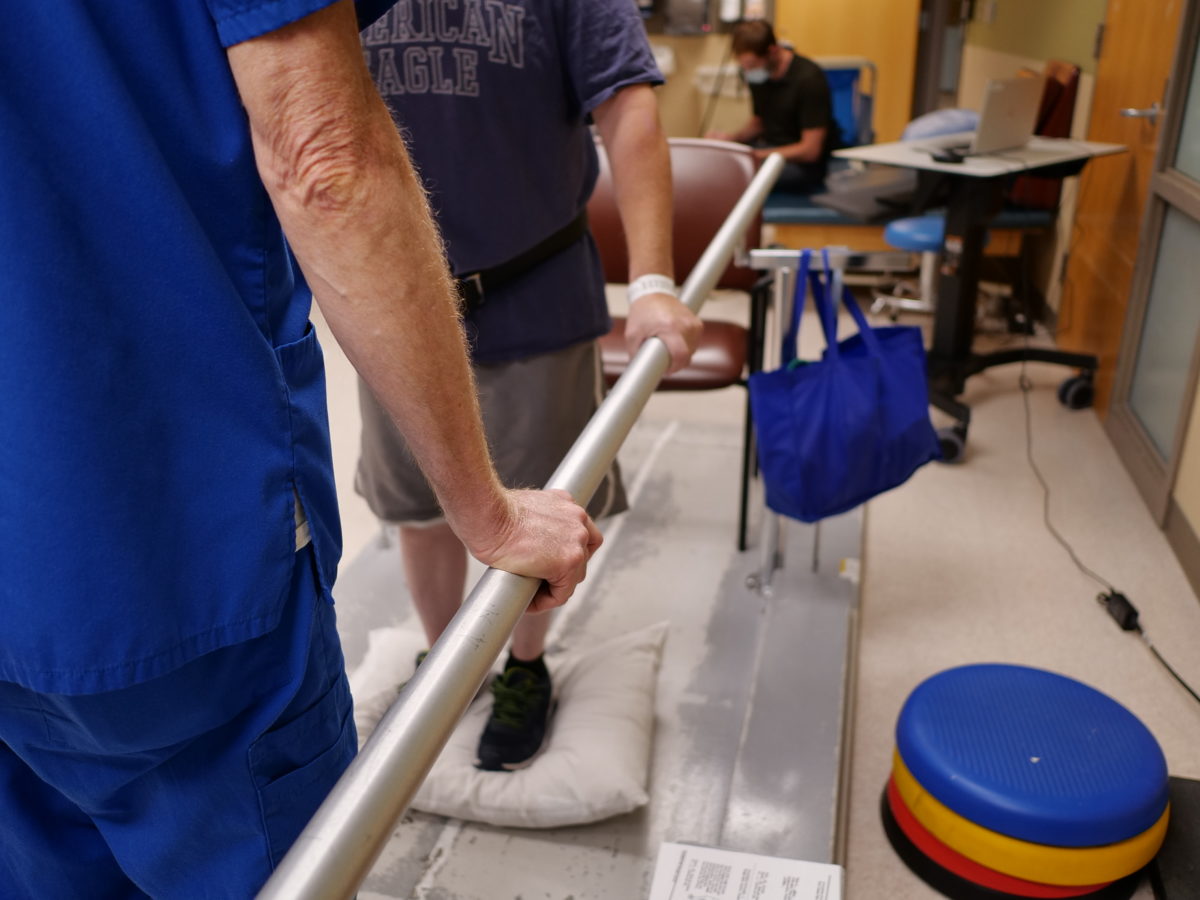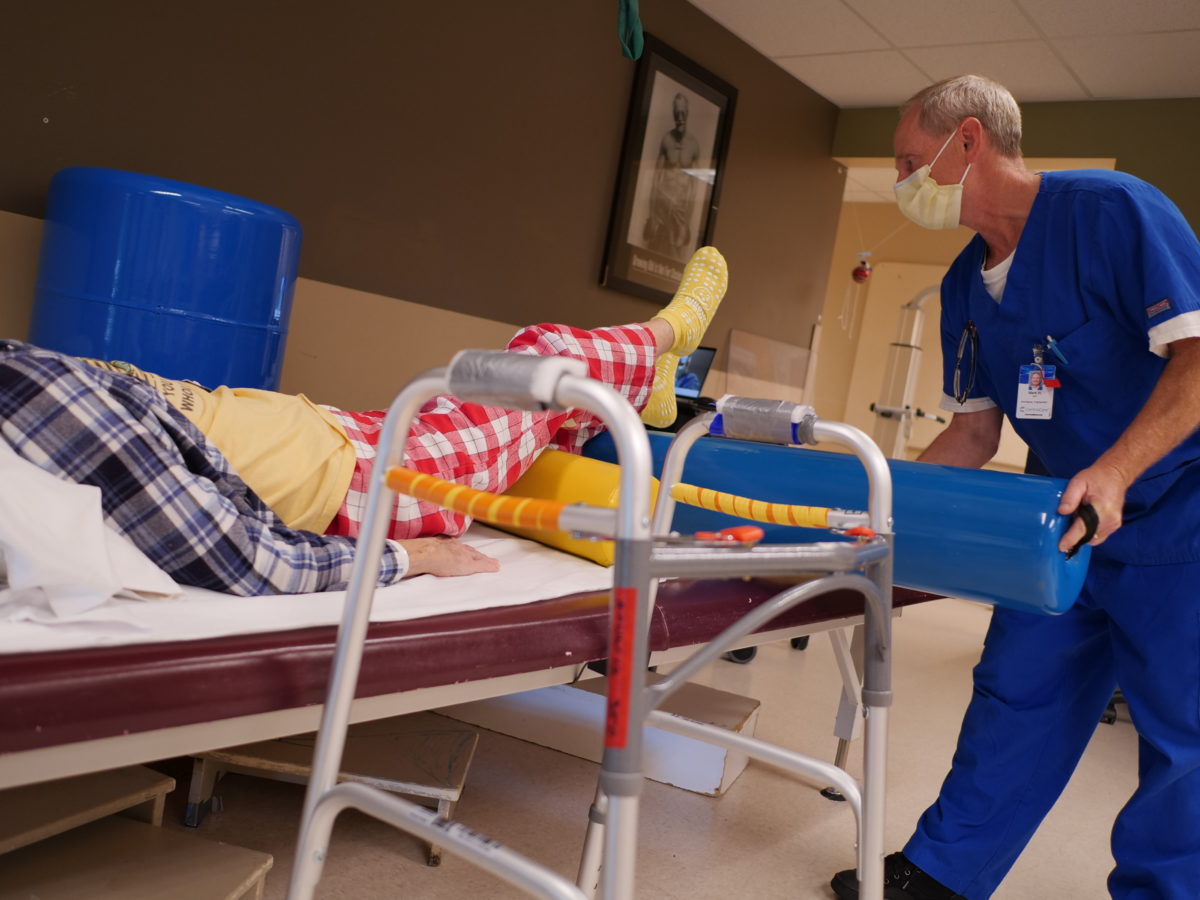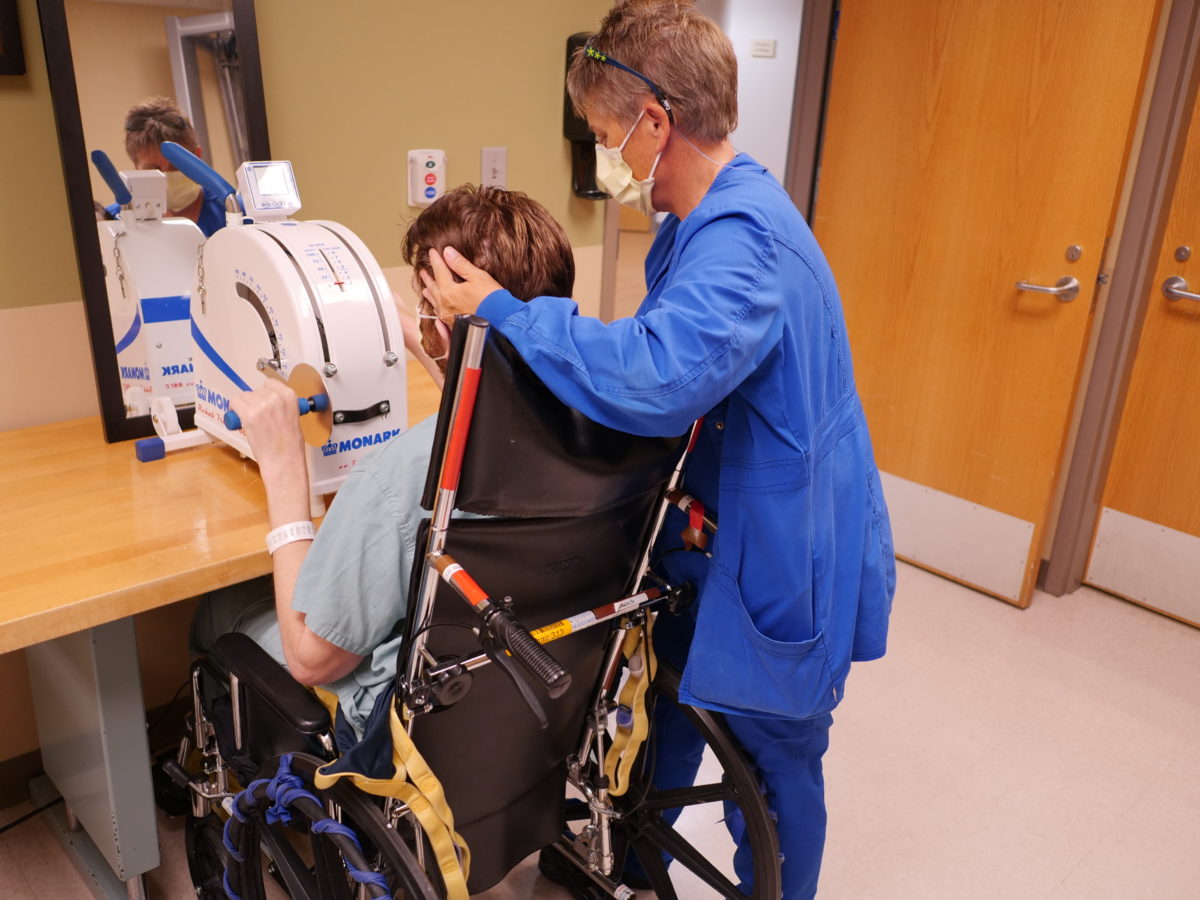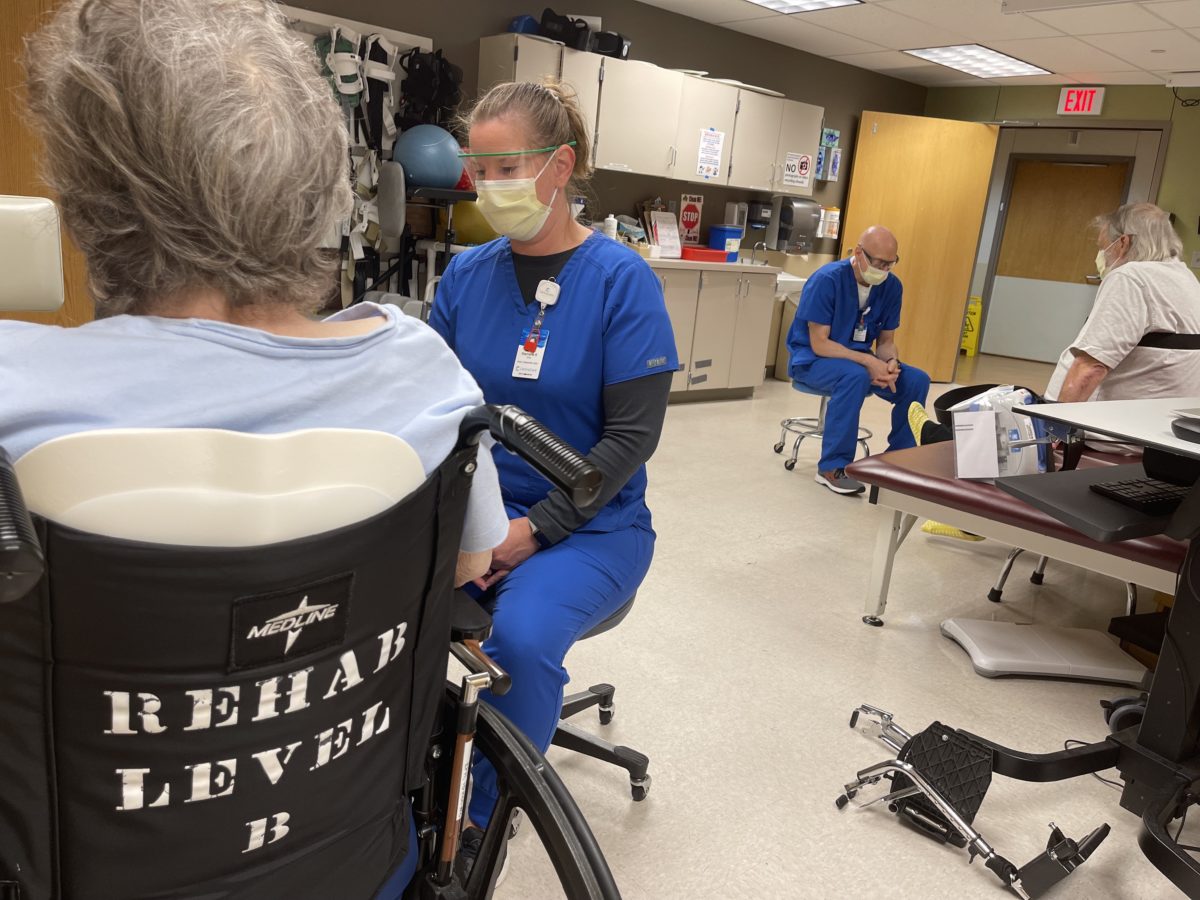Fast Lane To Recovery
A look inside the inpatient rehab unit
“It’s like the fast lane to recovery.” That’s how Tiffany Rickbeil, MD, hospitalist, describes the inpatient rehab unit at St. Cloud Hospital. “This service and this team is so important to the community because it helps people get back their health as fast as possible,” she says. “For patients who have complex medical problems or who need frequent follow up, it’s really in their best interest to be at the hospital in inpatient rehab.”
Inpatient rehab is unique because of its continuity and intensity.
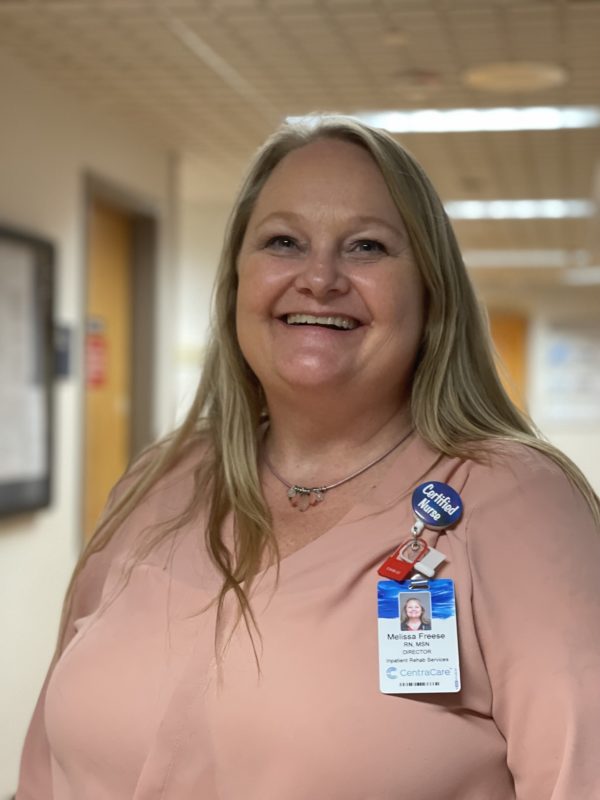
“We serve patients differently than a skilled nursing facility or a transitional care unit,”
says Melissa Freese, director of the inpatient rehab unit. “Our patients here really get that intensive therapy to get them to their functional level quicker so they can go home.
While they can accomplish that in a nursing facility or transitional care unit, it’s a slower pace,” she explains. “For example, among patients who have experienced stroke, there is evidence supports that that patient should go to inpatient rehab unit over another facility.”
Every day the inpatient rehab unit is bustling with activity as the team of providers, nurses, therapists, and assistants provide patients with at least three hours of therapy each day to aide in their recovery.
Rehab in action
In the rehab gym, physical therapist Mark Heffley works with a woman recovering from a hip fracture. He patiently helps her with movement to build confidence doing daily tasks that many take for granted, such as safely getting in and out of a car, climbing stairs or getting into bed.
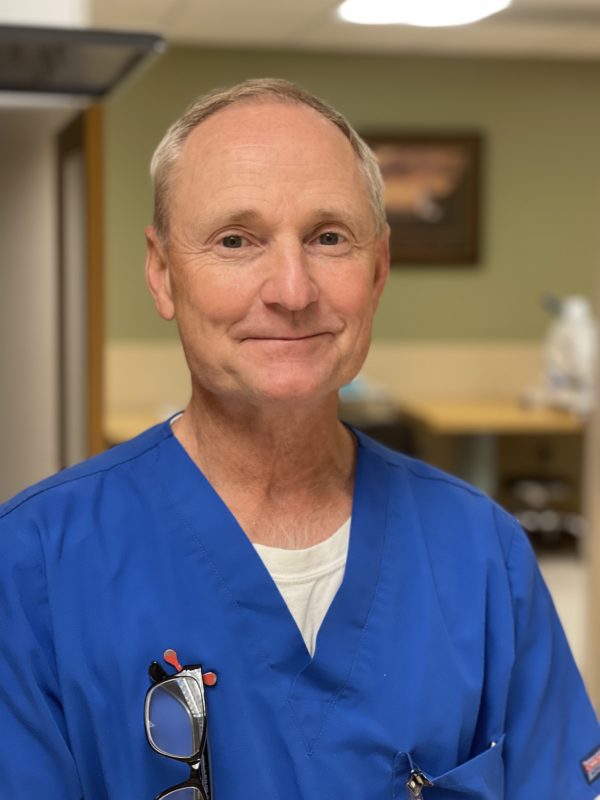
“It’s a physically demanding job,”
he says. But he points out the many upsides. “The best thing is we have such a good group of people to work with. The physical therapists and occupational therapists share an office and that’s really nice. We can be happy when a patient has those victories, we can commiserate when needed, and we can problem solve together.”
The problem solving and teamwork is beneficial for both the team and patients.
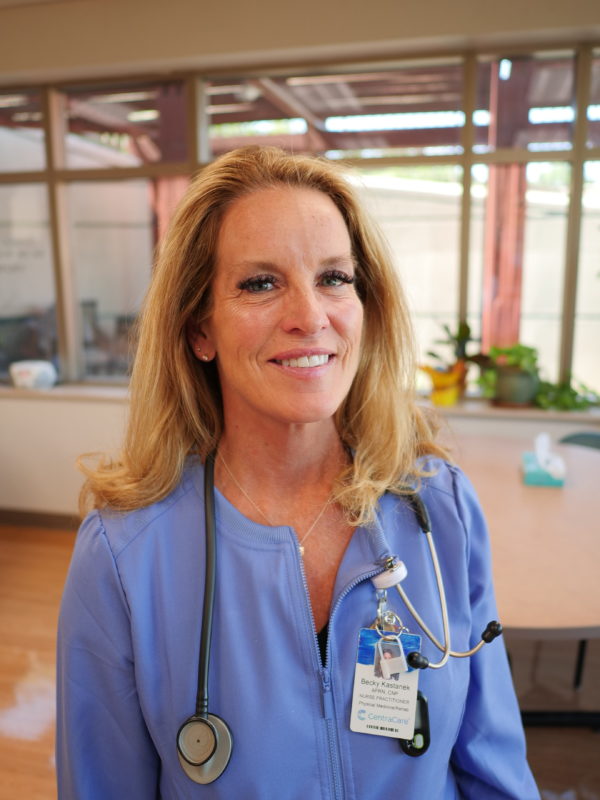
“We care not only for the physical needs and functional needs of the patient, but the medical needs too,”
says Becky Kastanek, nurse practitioner. “We have RN staff and we have PT’s, and we’re adding more therapies to the patient care. What’s nice is that we actually get to see them get better.”
Kastanek adds that the continuity of care is seamless, should the patient need additional services. “If a patient needs an x-ray, or a CAT scan, we’ll get them upstairs so the providers can take care of it. Whereas if the patient was in a different facility and needed these services, they’d need to get in an ambulance, come through the ER and go through the whole process again. So that connection to all levels of care is one of our strong points.”
All about safety
Ultimately, the team’s focus is helping patients improve so they can be safe and avoid coming back to the hospital. The unit has layers of support and resources for patients and their families so they can be successful when they leave. This includes regular patient/family meetings with the care team so that expectations are clear, progress is discussed, and questions are answered.
But the special sauce that makes the Inpatient Rehab team stand out is the team providing care.
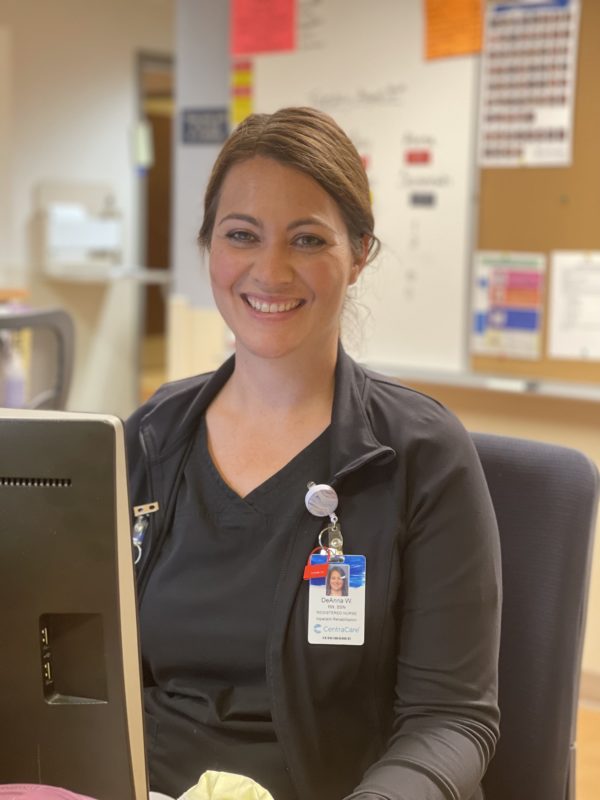
“It’s a small unit compared to other units throughout the hospital,”
says Deanna Weber, RN. “We really get to know our coworkers and the length of stay for patients is longer than typical hospital stays so we really get to know our patients too. The combination of the relationships with patients and coworkers is what really keeps me thriving down here.”
She also says everyone relies on each other. “Not one of us can do the job without each other. Whether that be physical therapy, occupational therapy, nursing, speech therapy, or nursing assistants, we all do our part to make the patient’s stay safe and their rehab successful. It’s very rewarding.”
Occupational therapist Katy Coppicus also takes great pride in helping patients and their families recover. “I personally love my job because I get to help people,” she says.
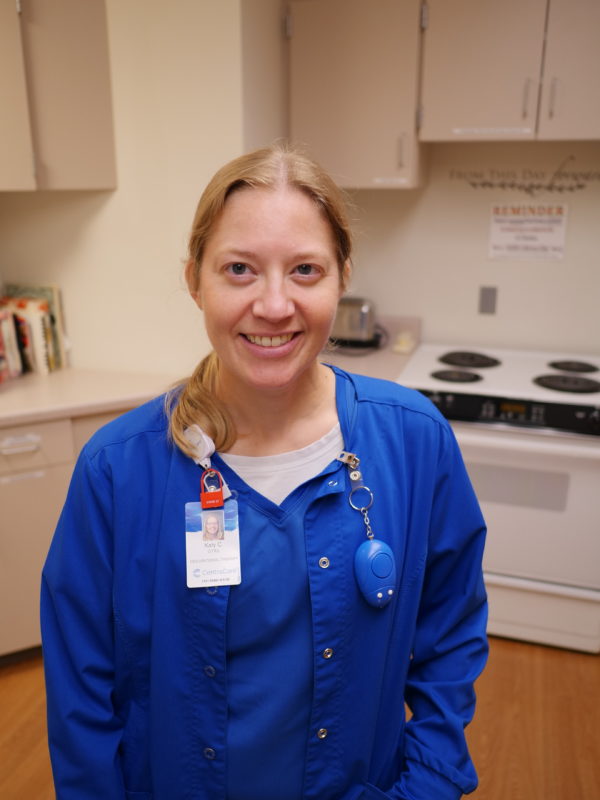
“Especially those patients who have been in the hospital a long time. When we can help them go home – when that’s all they want to do – it’s really fulfilling.”
Constantly learning
For Kelly Collins, MD, medical director for inpatient rehab, the way the team supports each other and shares knowledge is something she’s especially proud of. “Like everything in medicine, you are constantly learning,” said Dr. Collins. “Our hospitalist team is so smart and they’re also learning things from the therapists, nurses, and nurse practitioners. It’s great collaboration. It’s just a great team and a great place to work. I love it down here.”


